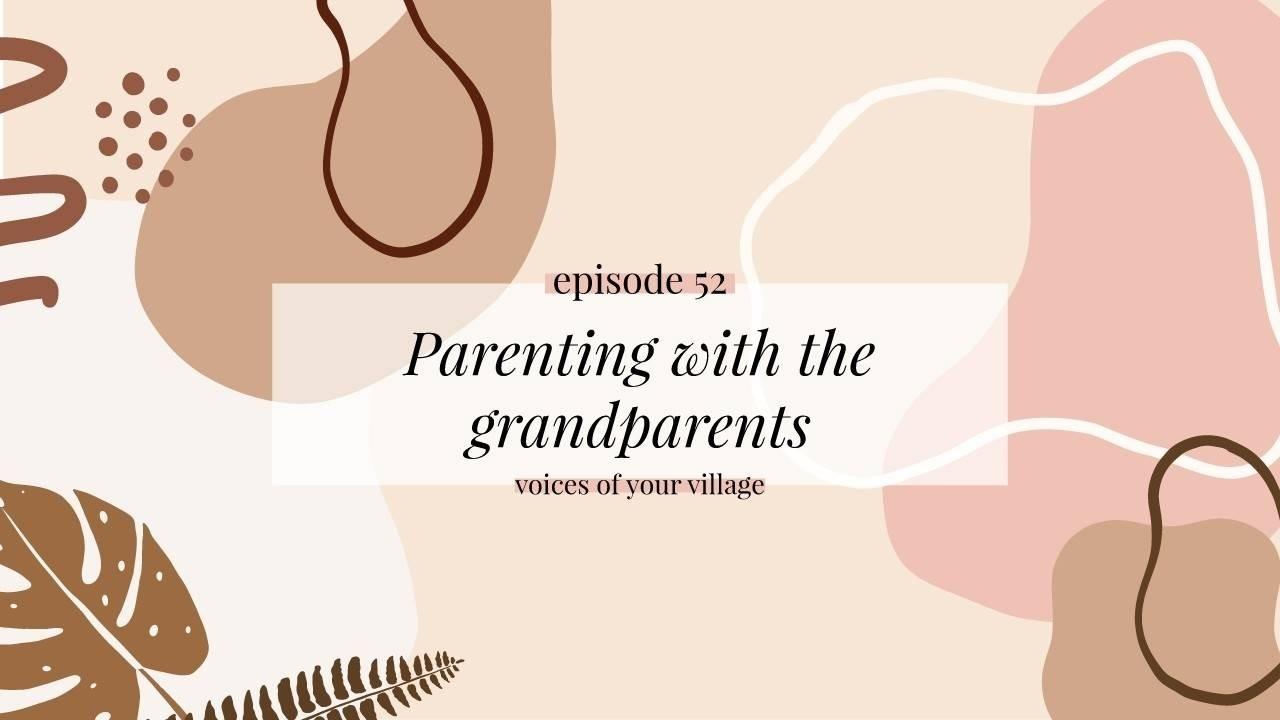Parenting with the grandparents, with Desiree Fortin

This week I was jazzed to chat with triplet mom Desiree Fortin about parenting with the grandparents. Two months before Desiree gave birth to their triplets, she and her husband Ryan moved in with her parents. Desiree shared that she was on bedrest and Ryan was working so living with her parents and having her mom take care of her was a real blessing.
Desiree shares that when her triplets were born her parents sacrificed so much and were totally hands-on in taking care of the babies. The triplets were all diagnosed with GERD and in addition to needing to eat throughout the night, they also needed to be held upright for 30 minutes after each feeding. Her parents dove right into nighttime help and helped every night for months. Desiree experienced postpartum depression and anxiety and having the help of her parents made a huge difference for her during that difficult season.
I asked Desiree how she navigated developing her own parenting style while having her own parents alongside her. She shares that overall her parenting style is similar to her parents but there have been some differences. When a difference pops up, Desiree tries to be mindful of keeping communication open and having honest discussions with her parents about how they want to approach a situation. She explains that setting boundaries with open communication is important to preventing feelings of frustration, overwhelm, and exhaustion.
I asked Desiree how she would navigate a situation where a grandparent was over-stepping and acting more like the parent. She shares that for her, open communication is paramount. She recommends having an honest, kind, frank conversation. The conversation may have to happen more than once but it’s important to set that boundary. I also asked her how she would handle a situation where a family member stepped into a moment when a kiddo was crying and told the kiddo to stop crying. Desiree shared that although it may be uncomfortable, being honest and saying something like “you’re not being helpful” can be a good way to set a boundary in the moment. Talking to everyone to try to keep them on the same page, and validating the other person can also be helpful, while still maintaining whatever boundary you’ve set as the parent.
We chatted about other situations that can pop up when family is heavily involved and how to deal with boundary setting and differences that may pop up along the way. The common thread is communication. Open conversations and a willingness to recognize when a change may be necessary. Sometimes evaluating priorities comes into play too. Is it more important to set infant sleep boundaries or to keep the current childcare provider? Sometimes there may be a workable solution and sometimes you need to find a new childcare provider.
I asked Desiree if she felt like the experience of living with her own parents is different than it would be if they were living with her in-laws. She shared that they maintain open communication with both her parents and Ryan’s parents. Both her parents and her in-laws have been very receptive. The dynamic is different because they don’t live with Ryan’s parents but the open communication is still necessary.
We wrapped up our chat with Desiree sharing the one take away she would want to share with parents who are navigating parenting alongside involved family members. Again, she emphasized the need for honest, open communication. She recognizes the challenges that come alongside that type of communication and how uncomfortable it can be but really believes that it is key. Letting your guard down can be scary, but it opens the door for really effective communication and positive change.
